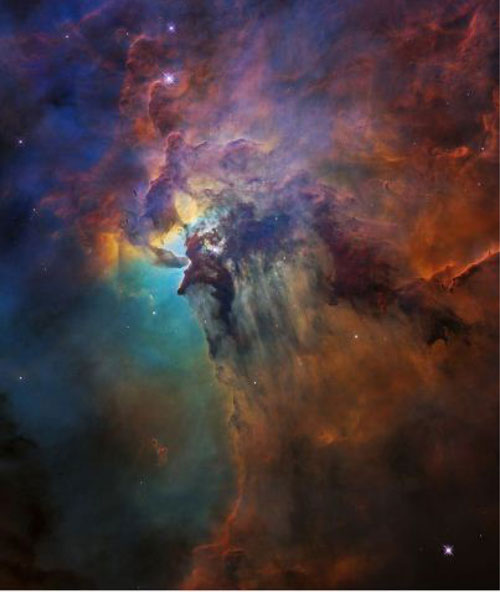NASA says Herschel 36 is now one-million-year old but it is still quite young in cosmic sense.
Says star is located in constellation Sagittarius, 4,000 light-years away.
Says “it is throwing off its natal cocoon of material.” NASA has recently shared a breath-taking image of a huge star named Herschel 36 in the centre of the Lagoon Nebula.
The star is 200,000 times brighter than our sun and is located in the constellation Sagittarius about 4,000 light-years away.
NASA’s Hubble telescope — a joint project of NASA with the European Space Agency (ESA) — captured the photograph. The Lagoon Nebula is full of explosive gases, intense radiation, and stellar winds. The interaction between all these makes an exquisite landscape.
While the star is now one-million-year old, NASA says it is still quite young in the cosmic sense. “It is throwing off its natal cocoon of material – ionised gasses like hydrogen (red) and nitrogen (green),” NASA wrote in the post.—AP










